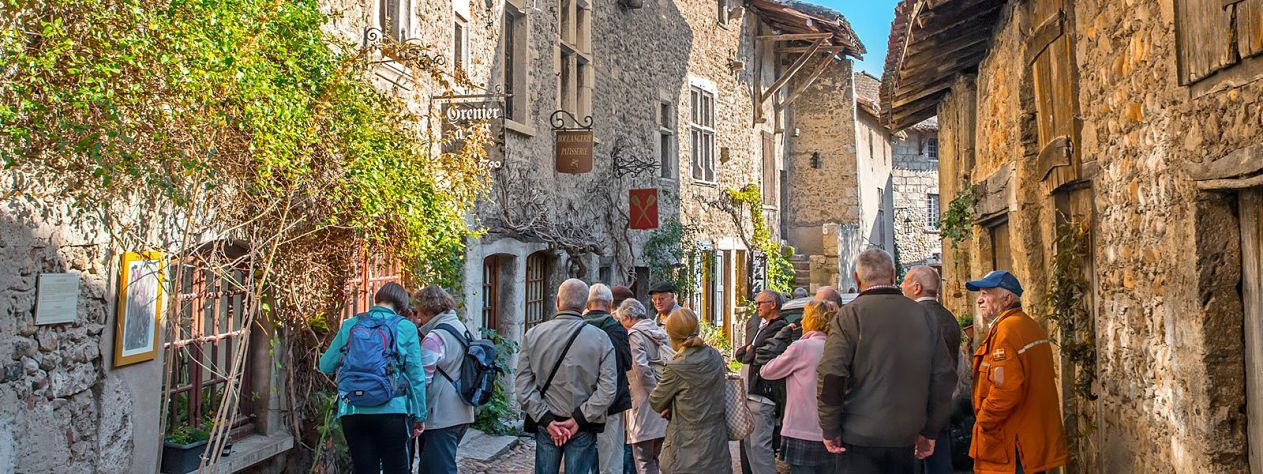Travel for singles over 60 is experiencing a surge in popularity, with more mature individuals embracing the freedom and adventure of solo journeys. This burgeoning trend reflects a desire for personal exploration, independence, and the chance to discover new cultures and experiences on one’s own terms. This guide delves into the practical aspects of planning and executing a safe and enriching solo trip, addressing concerns about safety, logistics, and social interaction while emphasizing the unique rewards of traveling alone later in life.
From choosing the perfect destination and navigating transportation to budgeting effectively and staying connected with loved ones, we’ll cover everything you need to know to embark on a memorable and fulfilling solo adventure. We’ll explore destinations tailored to older travelers, discuss safety precautions, and offer tips for making the most of your journey, whether you prefer independent exploration or joining a guided tour.
Safety and Security Considerations
Traveling solo after 60 offers incredible opportunities for personal growth and exploration, but prioritizing safety and security is paramount. This section details strategies to mitigate risks and ensure a worry-free journey. Proactive planning and awareness are key to a successful and enjoyable solo trip.
Preventative Measures for Personal Safety
Maintaining personal safety while traveling alone requires a multi-faceted approach. It’s crucial to be aware of your surroundings at all times and avoid displaying expensive jewelry or large amounts of cash. Choosing well-lit and populated areas for walking, especially at night, is strongly advised. Inform someone of your itinerary, including accommodation details and planned activities, and check in regularly.
Trust your instincts; if a situation feels unsafe, remove yourself immediately. Consider taking a self-defense class before your trip to build confidence and preparedness.
Securing Finances While Traveling Internationally
Managing finances securely while abroad requires careful planning. Notify your bank and credit card companies of your travel dates and destinations to prevent your cards from being blocked due to unusual activity. Carry multiple credit cards and debit cards, keeping them in separate locations. Avoid using ATMs in isolated or poorly lit areas. Consider using a travel money card, which offers a secure and convenient way to access funds internationally.
Keep detailed records of all transactions and contact your financial institutions immediately if you suspect any fraudulent activity.
Staying Connected with Family and Friends
Maintaining communication with loved ones while traveling solo provides peace of mind. Before departure, ensure your mobile phone plan includes international roaming or consider purchasing a local SIM card. Regularly check in with family and friends via phone calls, text messages, or video chats. Share your itinerary and planned check-in times with them. Utilize social media or travel apps to update your contacts on your location and experiences, but be mindful of sharing too much personal information publicly.
Essential Safety Checklist for Solo Travelers Over 60
A well-prepared traveler is a safe traveler. This checklist highlights essential items for solo travelers over 60:
- Copies of passport, visa, and other important documents (stored separately from originals).
- Emergency contact information readily accessible.
- Medications and a list of allergies or medical conditions.
- Portable charger for electronic devices.
- Small, lightweight personal safety alarm.
- Basic first-aid kit.
Travel Planning and Logistics: Travel For Singles Over 60
Planning a solo trip for singles over 60 requires careful consideration, but the rewards of independent exploration are immense. This section Artikels the key steps involved, from initial destination selection to securing travel insurance and packing essential documents. Thorough preparation ensures a smooth and enjoyable journey.
Destination Selection and Trip Duration
Choosing a destination is the first crucial step. Factors to consider include personal interests (history, nature, culture, etc.), accessibility (ease of navigation, availability of senior-friendly accommodations), and budget. Popular destinations for solo travelers over 60 often include destinations known for their manageable pace, good infrastructure, and cultural richness, such as Portugal, Italy, or Japan. The trip’s duration should align with personal stamina and budget.
A shorter, more focused trip might be preferable to a longer, more demanding one, particularly for a first solo adventure.
Booking Flights and Accommodations
Once the destination and dates are set, booking flights and accommodations follows. Websites specializing in senior travel or offering flexible booking options are beneficial. Consider factors like flight duration, layovers, and airline policies regarding senior travelers. For accommodations, explore hotels with accessible rooms, good reviews, and convenient locations. Booking directly with hotels or through reputable online travel agencies can provide better control and customer support.
Exploring options like Airbnb for longer stays could offer more home-like environments.
Sample Seven-Day Itinerary: Lisbon, Portugal
This itinerary provides a framework for a seven-day solo trip to Lisbon, Portugal, a city known for its charm, accessibility, and rich history. Costs are estimates and may vary depending on the season and personal spending habits.
| Day | Activity | Estimated Cost (€) |
|---|---|---|
| 1 | Arrive in Lisbon, check into hotel, explore Alfama district | 50 (transport & food) |
| 2 | Visit Jerónimos Monastery & Belém Tower | 30 (entry fees & transport) |
| 3 | Ride Tram 28, explore Graça neighborhood | 20 (tram & food) |
| 4 | Day trip to Sintra (Pena Palace, Quinta da Regaleira) | 80 (transport, entry fees, food) |
| 5 | Visit São Jorge Castle, enjoy Fado music performance | 60 (entry fees, dinner) |
| 6 | Explore LX Factory, enjoy a cooking class | 70 (class, food, transport) |
| 7 | Depart from Lisbon | 20 (transport) |
Total estimated cost: €310 (excluding flights and accommodation). This is a flexible itinerary; activities can be adjusted based on personal preferences and energy levels.
Travel Insurance for Solo Travelers Over 60
Travel insurance is crucial, especially for solo travelers over
Browse the implementation of places to vacation in alabama in real-world situations to understand its applications.
Several options exist, each with different levels of coverage:
- Basic Travel Insurance: Covers trip cancellations, medical emergencies, and lost luggage. This is a minimum requirement.
- Comprehensive Travel Insurance: Includes broader coverage, such as emergency medical evacuation, repatriation, and personal liability. This is highly recommended for solo travelers, especially seniors.
- Specialized Senior Travel Insurance: Offers tailored coverage for specific health concerns and age-related risks. This is particularly valuable for those with pre-existing medical conditions.
It’s essential to carefully compare policies and choose one that aligns with individual needs and health status. Consider factors like pre-existing conditions, planned activities, and the destination’s medical facilities.
Essential Documents and Information
Before departing, ensure you have the following:
- Passport (with at least six months validity remaining)
- Visa (if required)
- Travel insurance policy details
- Flight and accommodation confirmations
- Copies of important documents (passport, insurance, itinerary) stored separately from originals
- Emergency contact information (family, friends, doctor)
- Credit cards and sufficient cash
- Prescriptions and any necessary medical information
- Phrasebook or translation app
Social Interaction and Community

Traveling solo after 60 doesn’t mean traveling alone. Numerous opportunities exist for socializing and building connections with fellow travelers, enriching the overall experience and combating potential feelings of isolation. Active participation in social activities can significantly enhance the enjoyment of solo adventures.Many avenues exist for fostering a sense of community while traveling independently. These opportunities range from joining pre-organized group tours to actively seeking out social interactions during independent exploration.
The key is proactive engagement and a willingness to connect with others.
Meeting Fellow Travelers
Finding like-minded individuals is easier than one might think. Cruises, specifically those catering to mature travelers, often incorporate numerous social activities and events designed to encourage interaction. Similarly, many hostels, while traditionally associated with younger travelers, now offer private rooms and communal areas that can foster a sense of community among guests of all ages. Utilizing travel forums and online groups dedicated to solo travel or travel for seniors can also provide valuable connections before and during a trip.
Participating in local events and activities, such as cooking classes or walking tours, presents further opportunities to meet people with shared interests. Finally, simply striking up conversations with fellow travelers encountered at restaurants, museums, or scenic viewpoints can lead to unexpected friendships and shared experiences.
Organizations for Solo Travelers Over 60, Travel for singles over 60
Several organizations specialize in facilitating travel experiences for solo travelers, particularly those over 60. These groups often arrange tours and excursions specifically designed to cater to the interests and needs of this demographic. For example, the “Road Scholar” program offers educational travel adventures for adults of all ages, often including options for solo travelers. Many travel agencies also offer specifically tailored packages for solo travelers, incorporating features such as single-occupancy room discounts and group activities designed to encourage social interaction.
These organizations often handle logistics, transportation, and accommodation, leaving the traveler free to focus on enjoying the experience and connecting with others. Furthermore, online communities and forums dedicated to senior travel offer a space for travelers to connect, share tips, and even organize informal meetups during their travels.
Guided Tours versus Independent Travel
The decision between joining a guided tour and embarking on independent travel is a personal one, often dependent on individual preferences and travel style. Guided tours offer the benefit of structured itineraries, pre-arranged accommodations, and built-in social interaction. The organized nature of these tours eliminates the logistical planning involved in independent travel and provides opportunities to meet and connect with fellow travelers.
However, independent travel offers greater flexibility and spontaneity. It allows for a more personalized experience and the freedom to deviate from a pre-set itinerary. The choice depends on whether the priority is structured socialization and ease of planning or individual freedom and flexibility. Both approaches can be equally rewarding, offering unique advantages depending on the traveler’s priorities.
Budgeting and Financing a Trip

Planning a solo trip for seniors over 60 requires careful budgeting to ensure a comfortable and enjoyable experience without overspending. A realistic budget considers all aspects of the journey, from airfare to daily expenses, and allows for unexpected costs. Proper financial planning is crucial for stress-free travel.
Creating a Realistic Budget
Developing a comprehensive budget involves meticulously listing all anticipated expenses. Start by identifying your destination and travel dates, as these significantly influence costs. Flights and accommodation typically represent the largest expenditures. Use online comparison tools to find the best deals on airfare, considering factors like travel dates and booking time. For accommodation, explore options ranging from budget-friendly hostels to mid-range hotels or vacation rentals, depending on your preference and budget.
Factor in daily expenses, including meals, transportation within your destination, entrance fees to attractions, and potential souvenirs. A realistic daily spending estimate helps manage your budget effectively. Remember to include a contingency fund for unforeseen expenses, such as medical emergencies or flight delays. For example, a two-week trip might require a daily budget of $100-$200 depending on the destination and lifestyle.
This budget could be broken down further: $50 for accommodation, $50 for food, and $50-$100 for activities and miscellaneous expenses.
Financing Options for Solo Travel
Several financing options exist for funding your solo trip. Many individuals utilize personal savings accumulated over time. This provides a secure and predictable funding source, eliminating debt. Alternatively, travel credit cards offer rewards points or cashback on travel expenses, potentially reducing the overall cost. However, responsible use is crucial to avoid accumulating high-interest debt.
Travel loans, specifically designed for travel expenses, provide a structured repayment plan, but interest charges should be carefully considered. Before choosing any financing method, carefully compare interest rates, fees, and repayment terms. For instance, a travel credit card with a 0% introductory APR could be beneficial for short-term trips, while a travel loan might be more suitable for longer, more expensive journeys.
Saving Money on Travel Expenses
Numerous strategies can significantly reduce travel costs. Booking flights and accommodations well in advance often secures lower prices, especially during off-season periods. Consider traveling during the shoulder seasons (spring and fall) to avoid peak tourist crowds and high prices. Take advantage of senior discounts offered by airlines, hotels, and attractions. Utilize budget-friendly transportation options like public transport or walking whenever possible.
Packing light reduces baggage fees and simplifies travel. Choosing cost-effective dining options, such as local markets or smaller restaurants, can substantially lower food expenses. Searching for free activities, such as visiting parks or exploring local neighborhoods, can enhance your trip without increasing costs. For example, booking a flight three months in advance can often save 20-30% compared to last-minute bookings.
Similarly, utilizing senior discounts can offer significant savings on various travel-related expenses.
Embarking on a solo trip after 60 offers a unique opportunity for self-discovery and rejuvenation. By carefully planning your itinerary, prioritizing safety, and embracing the chance to connect with new people and cultures, you can create an unforgettable experience. Remember that the key to a successful solo adventure lies in preparation, flexibility, and a willingness to embrace the unexpected.
So, pack your bags, embrace the journey, and discover the world on your own terms.


